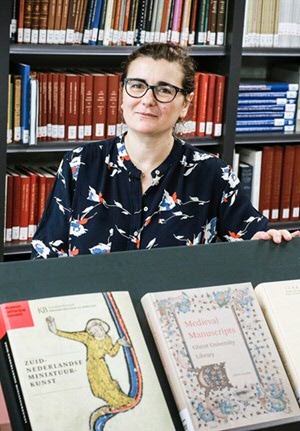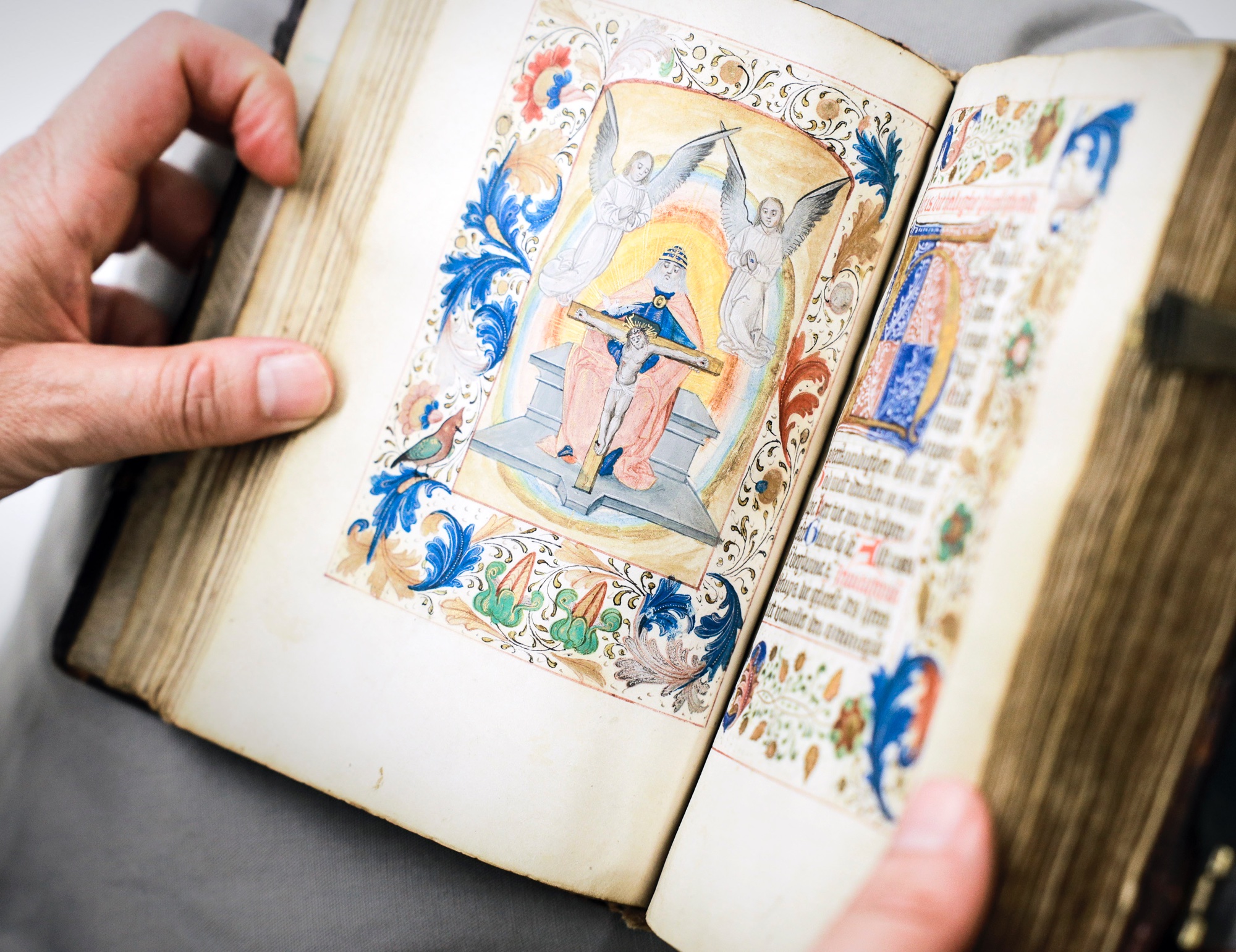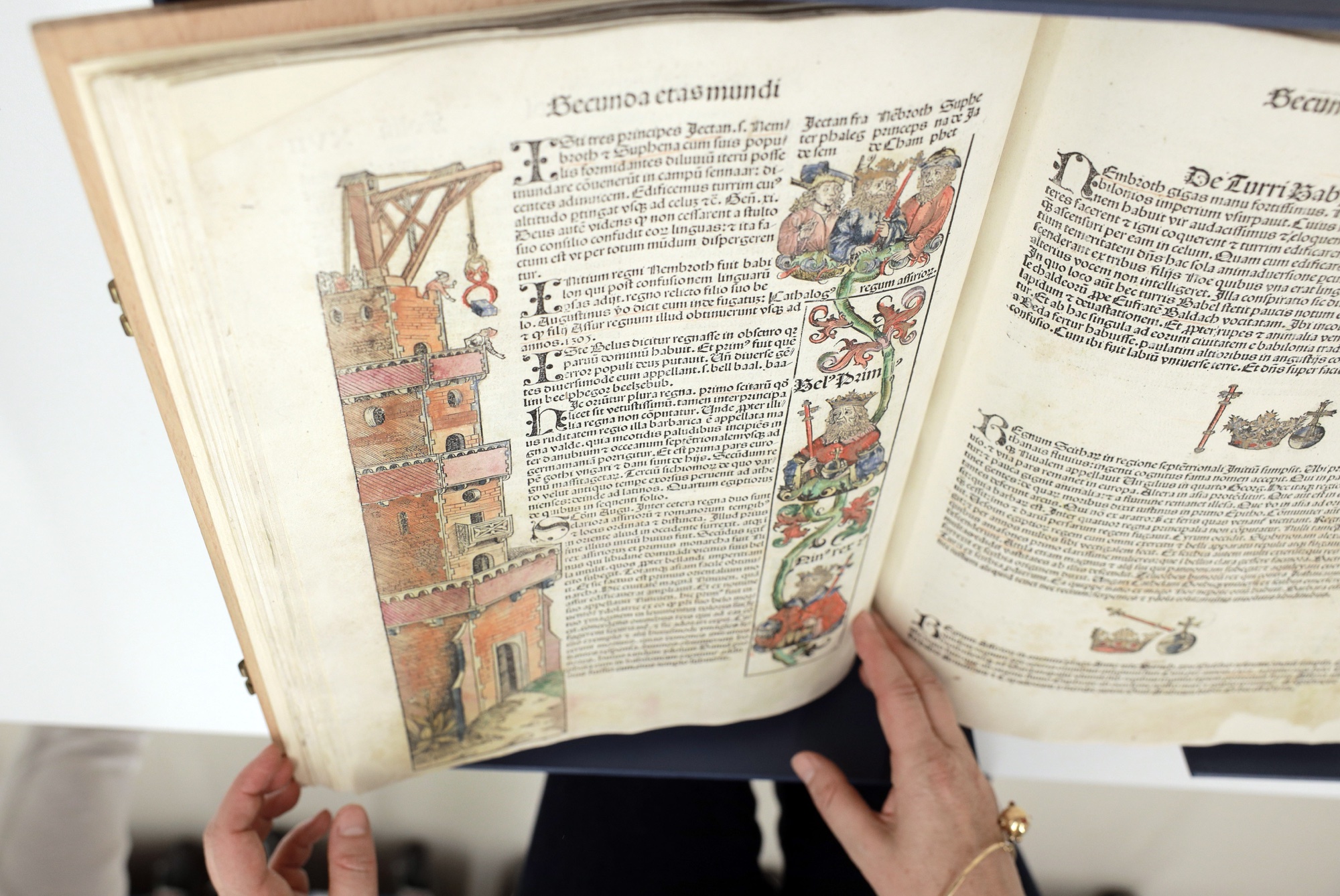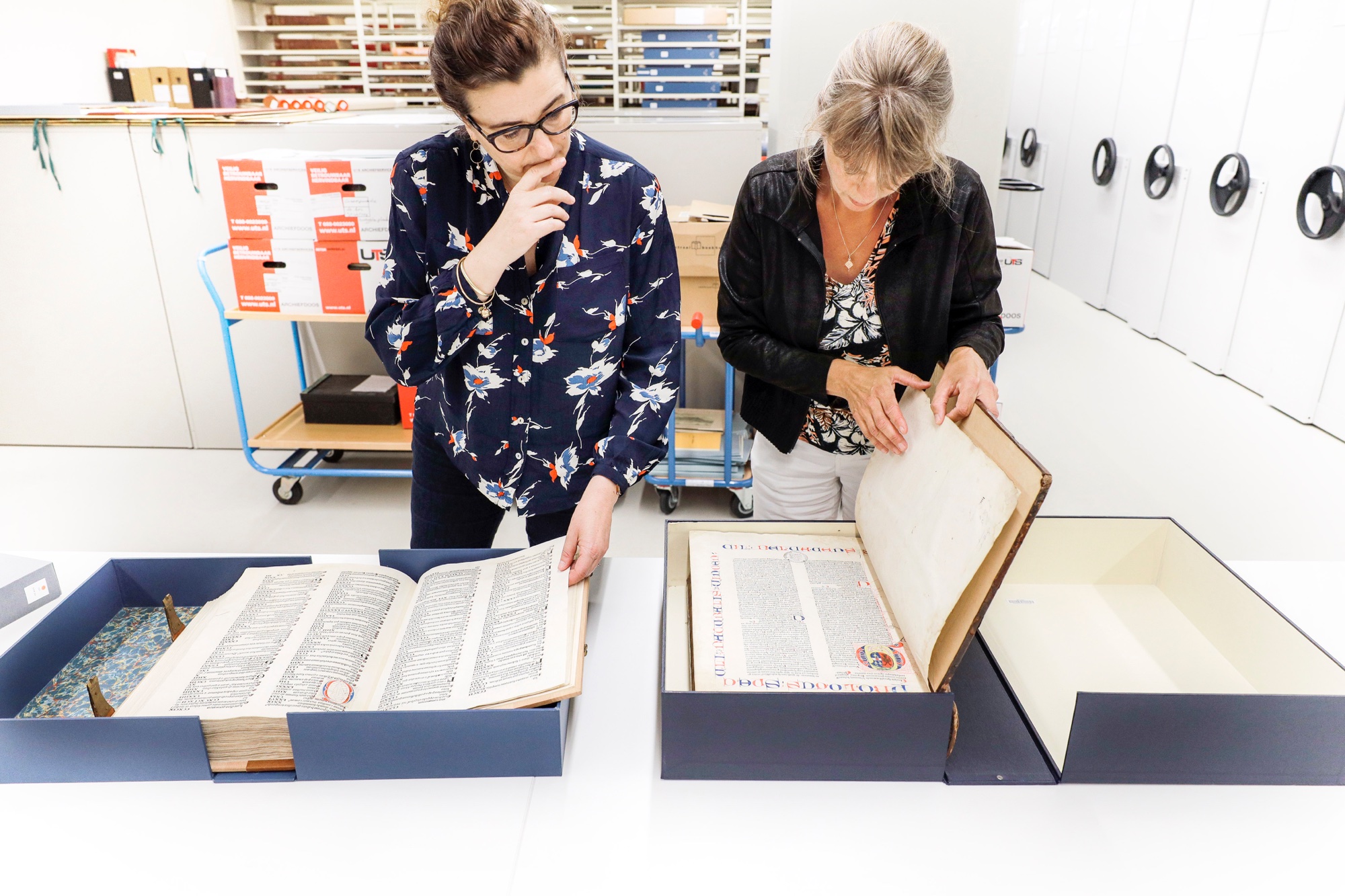Who were the readers of the Middle Ages?

Prof. Sabrina Corbellini conducts research into the history of reading in premodern Europe. Her research disproves persistent prejudices about the ‘dark’, ‘undeveloped’ Middle Ages. ‘The ability to read is essential to the functioning of society. This was the case in the Middle Ages, just as it is today.’
Text Marjolein te Winkel, Photos Henk Veenstra
The Middle Ages are not exactly known for their highly literate population. But this is more so due to the centuries-long prejudice than to actual historical facts, states Sabrina Corbellini. ‘The Middle Ages are still seen as a period in which knowledge was hardly available because only few people could read and in which books were expensive and were only set aside for the happy few: the powerful clerics in the cloisters and the rich gentry in the castles.’
No Dark Ages
But the image of the ‘dark’, ‘undeveloped’ Middle Ages was created in the period thereafter, explains Corbellini. ‘With the rise of humanism, a new period began. Humanists drew on ideas from classical Antiquity and wanted to show how great those were. To emphasize this, they felt it necessary to distance themselves from the time that had just passed, and even to demonize it. There is a reason that they coined the term the Middle Ages: a useless period between Antiquity and their “new” period.’ This image has persisted for around 500 years. ‘Even now, the Middle Ages are referenced as a less important time than Antiquity’, states Corbellini. ‘Antiquity is, of course, interesting in many respects. But I do not agree with the idea that we are heirs of the culture of the Antiquity and that we should therefore distance ourselves from the Middle Ages. We are just as much heirs of the cultural and textual productions from the Middle Ages and early modern period.’
Liberators of the Word
Corbellini’s research began during a previous project, of which the results combatted another, just as persistent, idea: that ordinary people only read the Bible themselves since the Reformation. ‘Protestantism is known as the religious development that made translations of the Bible possible. From Latin, which few people could read, into their own languages. It was thought that this made the Bible accessible to all’, says Corbellini. ‘But many Bible translations already existed before this. The image of Protestantism as a liberator of the Word of God is therefore more nuanced.’

Reading history
Corbellini came to this conclusion by exploring premodern Bible translations. ‘The question arose: who read these books, and how did they deal with the text? How did they read?’ This question underlies Corbellini’s professorship. ‘I do not research book history, but instead reading history. This revolves around the interaction between readers and their objects, be they handwritten or printed.’ Corbellini therefore researches traces that signify such interaction: dog-eared pages, underlined sentences, or notes in the margin. ‘Some diaries and egodocuments also describe reading experiences. And some books contain instructions telling the reader what is expected of them.’ Even the manner in which a book is compiled tells us a lot about the way in which a reader could approach it. Is the book divided into chapters, do the chapters have titles, are there references to other parts of the text? Corbellini: ‘A book with a table of contents can be read selectively. A book without a table of contents must be read from beginning to end. And take the format of a book, too: a small pocket book can be taken and read everywhere. A large book is made to read at a table, where you can more easily make notes.’

Hanseatic city of Deventer
Earlier this year, Corbellini featured in Het Verhaal van Nederland (‘The story of the Netherlands’), a popular TV series that sketched the history of the Netherlands in 10 episodes. ‘Her’ episode was set in Deventer. She knows the old Hanseatic city well. ‘Deventer is a very interesting city to study. Even back in the Middle Ages, it was a real “book city”. Manuscripts were produced here and, in the second half of the fifteenth century, a printing press was established. From early on, Deventer specialized in printing school books, for which it is still known. The Latin School of Deventer was also renowned from far and wide, and taught famous pupils like Thomas à Kempis and Erasmus.’ In the Middle Ages, Deventer was an important trading hub that needed people who could read and write in order to function well. ‘A city functions by virtue of its negotiations, by making agreements, by keeping on top of administration, and by maintaining an archive’, says Corbellini. In addition: ‘The ability to read, to be able to access texts and to discuss the knowledge obtained from them is essential to the functioning of society. This was the case in the Middle Ages, just as it is today.’
The Devotio Moderna
In the fourteenth century, Deventer was at the centre of a new religious movement: the Devotio Moderna, or Modern Devotion. ‘This was a highly influential religious movement that spread across the Netherlands and Europe, and which played an important role in the development of religious thought.’ Devotio Moderna followers attached great value to education. Corbellini: ‘Copies of books were produced and were made available in the community. And these were not only religious texts. One of the texts stemming from the start of the Devotio Moderna is about the importance of reading in the vernacular and actively promoting reading as a learning method.’

Disproving prejudices
Being able to read means being able to develop a critical attitude and to form your own opinion. These qualities are also—unjustly—not associated much with the Middle Ages. Corbellini sees it as a challenge to disprove the persistent prejudices about the time period of her study. ‘I am driven by the importance of gaining and sharing knowledge. I study the social circumstances that made the sharing of knowledge possible 600 years ago, and I myself would also like to share the knowledge that I have gained on this.’
Curious about the Deventer of the Middle Ages? The ‘Hidden Deventer’ walking tour, composed by Sabrina Corbellini, Margriet Hoogvliet, and Pieter Boonstra, guides you along a number of important places in this old ‘book city’. The route and information can be downloaded for free in the App Store or on Google Play.
About Sabrina Corbellini
Sabrina Corbellini studied Germanic Studies at the University of Bologna. She obtained her PhD from Leiden University for her research on fifteenth-century Dutch civil servant and writer Dirc Potter, and has stayed in the Netherlands ever since. She worked as a postdoctoral researcher, both in Literary Studies and in History, at various universities and also worked at the department of medieval manuscripts at Leiden University Library. Corbellini was appointed as a Rosalind Franklin Fellow in 2008 and was appointed as Professor of History of Reading in Premodern Europe in 2017.
| Last modified: | 19 September 2022 4.33 p.m. |
More news
-
16 April 2024
UG signs Barcelona Declaration on Open Research Information
In a significant stride toward advancing responsible research assessment and open science, the University of Groningen has officially signed the Barcelona Declaration on Open Research Information.
-
02 April 2024
Flying on wood dust
Every two weeks, UG Makers puts the spotlight on a researcher who has created something tangible, ranging from homemade measuring equipment for academic research to small or larger products that can change our daily lives. That is how UG...
-
18 March 2024
VentureLab North helps researchers to develop succesful startups
It has happened to many researchers. While working, you suddenly ask yourself: would this not be incredibly useful for people outside of my own research discipline? There are many ways to share the results of your research. For example, think of a...
